Deputy Minister of Finance Tran Quoc Phuong received Kanni Wignaraja, assistant secretary-general of the United Nations, on September 4 to discuss further cooperation.
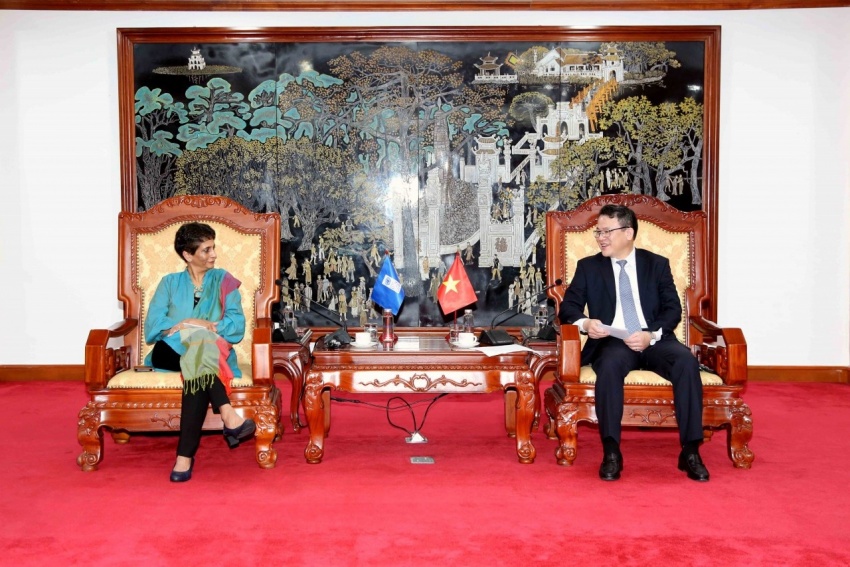 |
| Deputy Finance Minister Tran Quoc Phuong and Kanni Wignaraja, UN assistant secretary-general |
Speaking at the meeting, Deputy Minister Phuong congratulated the UN on its 80th anniversary and thanked Wignaraja for accompanying Vietnam’s development over the years, in various titles.
He proposed that the United Nations Development Programme (UNDP) align its support with Vietnam’s priorities, including maintaining macroeconomic stability, controlling inflation, enhancing economic resilience and autonomy, shifting the growth model from extensive to intensive development based on innovation, technology, and sustainability, fostering comprehensive human development, and narrowing regional gaps.
Specifically, the UNDP could support Vietnam in promoting green, digital, and circular economies; prioritising comprehensive digital transformation and high-tech industries; improving education quality and training high-quality human resources; reducing multidimensional poverty; developing a modern, fair, and inclusive social security system; accelerating energy transition and greenhouse gas emission reductions to meet the net z commitment; strengthening natural resource management and environmental protection; and developing green cities.
“The UNDP’s comparative advantage lies in recommending representatives, experts, and scientists to participate in UN technical and independent committees, such as the Committee on Science and Technology, the Committee on Climate Change, the Committee on Socioeconomic Development, and the Committee on the Law of the Sea,” he suggested.
He also highlighted the importance of connecting and learning from other continents and countries to build Vietnam’s capacity for digital economy development, AI, and regional science, technology, and STEM cooperation, as well as mobilising private sector participation.
On cooperation mechanisms, Phuong proposed resuming tripartite meetings between the UNDP, official development assistance (ODA) management agencies, and project-executing agencies; maintaining regular working mechanisms for alignment in cooperation directions; encouraging the UNDP to proactively share project ideas and funding proposals with development partners and funds to facilitate coordination in mobilisation, formulation, and approval processes; and continuing coordination in monitoring and supervising ongoing projects.
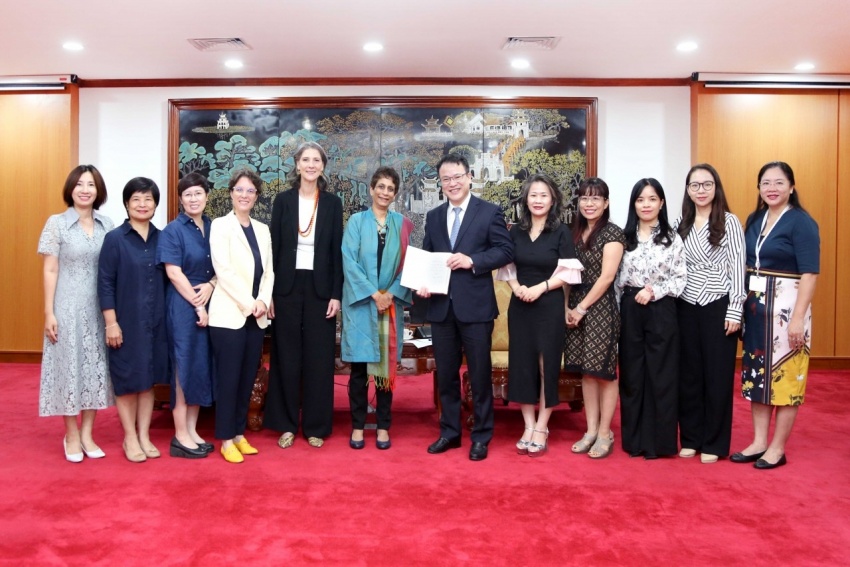 |
Wignaraja, who is also assistant administrator of the UNDP, director of the UNDP’s Regional Bureau for Asia-Pacific, and UNDP resident representative in Vietnam, highly appreciated Vietnam’s determination to achieve robust GDP growth, while noting important challenges that must be addressed. “UNDP is ready to cooperate with Vietnam with renewed approaches in optimising public investment, strengthening local governance capacity, and promoting the mobilisation of new financing sources,” she emphasised.
She thanked the Ministry of Finance (MoF) for leading the review of ODA regulations and emphasised the need for a streamlined and efficient ODA management system. The UNDP reaffirmed its readiness to support the ministry in this process.
She also called on the ministry, as chair of the Just Energy Transition Partnership Working Group on institutions, policies, and finance, to continue its leading role in mobilising public financial resources, a key factor in leveraging private investment.
“The UNDP looks forward to close cooperation with the MoF and relevant ministries in co-designing the 2027-2031 National Programme to ensure it aligns fully with Vietnam’s development vision,” she said.
The UNDP was one of the first UN organisations to enter Vietnam after national reunification. To date, it has been working with Vietnam for 48 years, through nearly 10 cooperation cycles. Each cycle has mobilised and provided more than $200 million, accounting for half of the total aid volume from the entire UN system for Vietnam.
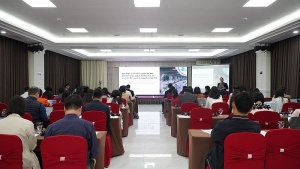 |
UNDP concludes pilot carbon credit projects in transportation sector
The United Nations Development Program (UNDP) held a workshop on December 3 to conclude an initiative themed “Development of pilot carbon credit projects in the transportation sector”. |
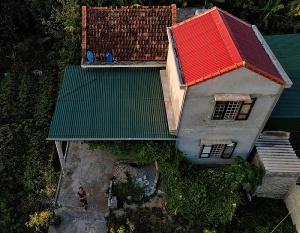 |
Building a sustainable future for coastal communities in the face of climate change
The Department of Dyke Management and Natural Disaster Prevention and the United Nations Development Programme (UNDP) in Vietnam organised a workshop on December 17 to review an initiative titled “Improving the resilience of vulnerable coastal communities to the impacts of climate change in Vietnam”. |
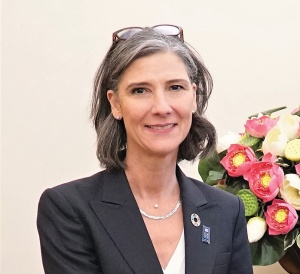 |
Sustaining growth and embracing opportunities
Vietnam’s economy has steadily regained momentum in 2024, benefiting from a global recovery in trade, declining inflation rates in major economies, and other factors. Ramla Khalidi, resident representative of the United Nations Development Programme in Vietnam, analyses the global context and key areas for Vietnam in terms of growth drives. |
 |
Government reforms offers opportunity to enhance local oversight
The 2024 Provincial Governance and Public Administration Performance Index (PAPI) released on April 15 reveals encouraging progress across several dimensions of local governance. |





